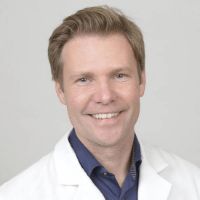
The program includes:
- Initial presentation in the clinic
- clinical history taking
- physical examination
- laboratory tests:
- complete blood count
- general urine analysis
- biochemical analysis of blood
- TSH-basal, fT3, fT4
- tumor markers
- indicators blood coagulation
- CT / MRI of the abdomen
- abdominal ultrasound
- preoperative care
- surgery treatment of testicular embryonal carcinoma
- histologically and immunohistochemically examination
of the remote tissues - symptomatic treatment
- control examinations
- the cost of essential medicines and materials
- nursing services
- full hospital accommodation
- explanation of future recommendations
Required documents
- Medical records
- MRI/CT scan (not older than 3 months)
- Biopsy results (if available)
Service
You may also book:
 BookingHealth Price from:
BookingHealth Price from:
About the department
According to the prestigious Focus magazine, the Department of Urology at the Brothers of Mercy Hospital Munich ranks among the top German medical facilities specializing in prostate, testicular, kidney and bladder cancer treatment!
The department offers the broadest range of modern examinations and effective treatment of genitourinary diseases in men. There are many modern therapeutic methods in the arsenal of doctors to deal with diseases of the prostate gland, testicles and external male genitalia, kidney and bladder disorders, and urinary incontinence in men and women. Of particular interest is the treatment of genitourinary cancers in men – the department has been certified by the German Cancer Society (DKG) in this field. The key to the department's successful clinical practice is the combination of high professionalism of doctors and the availability of innovative equipment, particularly a system for magnetic resonance imaging (MRI)-transrectal ultrasound fusion biopsy, devices for focal therapy for prostate tumors using high-intensity focused ultrasound (HIFU), etc. The Head Physician of the department is Prof. Dr. med. Alexander Karl.
Prostate cancer is quite common in the department's clinical practice, so doctors have gained rich experience in treating this pathology. The disease most often affects men over the age of 50. As in other cancers, early detection of the condition gives the best chances of recovery. At the diagnostic stage, a patient needs to have a PSA (prostate-specific antigen) test, a digital rectal exam of the prostate gland and transrectal ultrasound. If diagnostic results suggest the presence of a malignant tumor, the next step is a fine-needle aspiration biopsy of the prostate gland. With the diagnosis confirmed, CT, MRI, skeletal scintigraphy and other tests may be required. Depending on the cancer stage, an optimal treatment regimen is developed, which may include surgical removal of the tumor or prostate (radical prostatectomy), brachytherapy (internal radiation therapy), external beam radiation therapy, and hormone therapy. In some cases, doctors choose watchful waiting, which involves regular check-ups to monitor tumor growth and spread. This method can be used only in low-risk patients. The department also offers focal therapy using high-intensity focused ultrasound, which only affects the pathological areas of the organ while not damaging healthy tissues. In addition, such treatment significantly reduces the risk of side effects, such as impotence and urinary incontinence. HIFU therapy has been practiced in the medical facility since 1993, so doctors have excellent competencies in this area.
The department's specialists also treat benign prostatic hyperplasia. The pathology is a benign proliferation of gland tissues that provokes urinary system disorders. Prostate adenoma usually occurs in adulthood and the elderly. The treatment options for the pathology include minimally invasive laser techniques (HoLEP and BipolEP), robot-assisted surgery (Aquablation technique), minimally invasive interventions (transurethral incision of the prostate and transurethral resection of the prostate), and open surgical interventions (open adenomectomy).
The department's therapeutic options are complemented by treating benign and malignant tumors of the kidneys and bladder, urinary incontinence, and kidney stone disease in men and women. The department's doctors have modern diagnostic equipment for making an accurate diagnosis and developing an individual treatment regimen. During the therapeutic process, both conservative and surgical treatment options are used. If the patient needs surgery, then, first of all, minimally traumatic surgical techniques are considered.
The department's team of urologists also admits men with benign, malignant and inflammatory pathologies of the testicles and external genitalia. The specialists treat testicular tumors, penile cancer, testicular torsion, penile curvature, epididymitis, hydrocele, varicocele, spermatocele, and phimosis. Standard cancer treatments include surgical resection, chemotherapy, and radiation therapy. Inflammatory processes (epididymitis) are treated with antibiotic therapy. Hydrocele, varicocele, spermatocele and phimosis are treated with surgical techniques. Patients with penile curvature are prescribed drug therapy, local shock wave therapy, and Nesbit's procedure. The department's specialists make every effort to provide each patient with the most effective but, at the same time, sparing treatment.
The department's clinical focuses include:
- Diagnostics and treatment of prostate diseases
- Prostate cancer
- Radical retropubic prostatectomy
- Brachytherapy
- Radiation therapy (3D conformal CT-guided radiation therapy)
- Watchful waiting (most often in elderly patients) – therapy begins only with the progression of the pathology
- High-intensity focused ultrasound (HIFU)
- Benign prostatic hyperplasia
- Drug therapy
- Minimally invasive laser techniques: HoLEP and BipolEP
- Robot-assisted Aquablation produces
- Minimally invasive interventions: transurethral incision and transurethral resection of the prostate
- Open enucleation of prostate adenoma (Millin's procedure)
- Prostatitis and chronic pelvic pain
- Drug therapy
- Prostate cancer
- Diagnostics and treatment of bladder diseases
- Bladder cancer
- Transurethral bladder resection
- En bloc bladder resection
- Total bladder removal (radical cystectomy)
- Neoadjuvant chemotherapy before cystectomy
- Adjuvant chemotherapy
- Treatment of advanced tumors without clear separation from surrounding tissues
- Bladder cancer
- Diagnostics and treatment of kidney diseases
- Kidney and bladder stones
- Drug therapy
- Ureterorenoscopy
- Kidney tumors
- Partial kidney removal
- Laparoscopic nephrectomy of the affected kidney
- Drug therapy for metastatic kidney tumors (for example, targeted therapy)
- Kidney and bladder stones
- Diagnostics and treatment of diseases of the testicles and external male genitalia
- Testicular cancer
- Orchiectomy
- Chemotherapy
- Lymphadenectomy (if the lymph nodes are affected)
- Radiation therapy
- Testicular torsion
- Symptomatic therapy
- Orchiopexy
- Epididymis inflammation (epididymitis)
- Drug therapy with antibiotics and painkillers
- Hydrocele
- Surgical treatment
- Varicocele
- Microsurgical interventions
- Sclerotherapy
- Spermatocele
- Surgical treatment
- Phimosis
- Surgical treatment
- Penile curvature
- Drug therapy
- Local shock wave therapy
- Surgical treatment
- Penile cancer
- Tumor removal
- Radiation therapy
- Penile amputation (in the advanced stages of the pathology)
- Penile prosthesis implantation
- Testicular cancer
- Diagnostics and treatment of urinary incontinence in men and women: imperative and stress urinary incontinence, and mixed forms of urinary incontinence
- Artificial sphincter implantation for stress urinary incontinence in men
- Transvaginal tape sling urethropexy (TVT) for stress urinary incontinence in women
- Injection therapy with botulinum toxin A (Botox)
- Other medical services
Curriculum vitae
Higher Education and Professional Career
- Human Medicine studies at Ludwig Maximilian University of Munich, and at Universities in Italy and Australia.
- Professional training in Urology, Department of Urology, University Hospital of Ludwig Maximilian University of Munich.
- 2008 Research Fellow, Department of Urology, University of California, San Francisco, USA.
- 2009 Fellow of the European Board of Urology (FEBU).
- 2009 Senior Physician of the Department of Urology at the University Hospital of Ludwig Maximilian University of Munich.
- Since 2009 Head of the Center for Bladder Tumors, University Hospital of Ludwig Maximilian University of Munich.
- Since 2009 Head of the Center for Second Opinion for Testicular Tumors, University Hospital of Ludwig Maximilian University of Munich.
- 2010 Habilitation in Urology. Subject: "Innovative diagnostic procedures for bladder cancer".
- 2011 Deputy Head of the Department of Adult and Pediatric Urology at the University Hospital of Ludwig Maximilian University of Munich.
- 2014 Professorship in Urology.
- Numerous scientific publications and book chapters in bladder cancer, and review activities for national and international scientific journals.
- Member of the German, European and American Society of Urology.
Photo of the doctor: (c) Barmherzige Brüder Krankenhaus München
About hospital
According to the Focus magazine, the Brothers of Mercy Hospital Munich ranks among the top German hospitals in the Federal State of Bavaria!
The hospital is a modern medical facility with the highest level of medical care and long traditions. The hospital operates on the basis of the Technical University of Munich and the German Academy of Nutrition, which contributes to the introduction of progressive diagnostic techniques and therapeutic innovations into clinical practice. The history of the medical facility has more than 100 years, and throughout this time, the specialists of the hospital manage not only to keep abreast of the very latest advances in medicine, but also remain true to the principles of charity and human compassion.
With more than 1,100 employees, the department's competent medical team admits about 18,300 inpatients and more than 31,500 outpatients every year. The hospital employs about 200 specialized physicians who work for the benefit of their patients and provide them with the best quality of treatment, but, at the same time, pay due attention to the patient's emotional state, try to support him in every possible way, and tune him to a positive treatment outcome.
The hospital's main focuses include general and abdominal surgery, gastroenterology, hepatology, oncology, urology, cardiology and pulmonology, orthopedics and traumatology, palliative care, diagnostic and interventional radiology, and others. The hospital regularly demonstrates high treatment success rates in all areas of its specialization, thanks to which it has gained an excellent reputation not only in Germany, but also in the European medical arena.
Many hospital's departments are awarded with prestigious quality certificates, including the endoCert certificate in joint replacement surgery from the German Society for Orthopedics and Orthopedic Surgery (DGOOC), the certificate of the German Hernia Society (DHG), the certificate of the German Cardiac Society (DGK), the certificates of the German Cancer Society (DKG) in bowel and liver cancer treatment. Patients can be sure that they trust their health to the best professionals who successfully cope with clinical tasks of any complexity.
Photo: (с) depositphotos
Accommodation in hospital
Patients rooms
The patients of the Brothers of Mercy Hospital Munich live in comfortable, spacious single and double rooms with bright colors. The standard room furnishing includes an automatically adjustable bed, a bedside table, a wardrobe, a telephone, a TV and a radio. Single rooms also have a mini-fridge and a safe. There is also a table and chairs for receiving visitors. The hospital offers access to Wi-Fi. Each patient room has an ensuite bathroom with a shower and a toilet. The bathroom has a cosmetic mirror, a hair dryer and toiletries, towels, etc.
Meals and Menus
The patients of the hospital are offered healthy and tasty three meals a day: breakfast, lunch and dinner. The menu also features vegetarian dishes. If you do not eat all the food for any reason, you will be provided with an individual menu.
Further details
Standard rooms include:
Religion
There is a small chapel on the territory of the hospital, where worship is regularly held. The chapel is also open for independent visits and prayers.
Accompanying person
Your accompanying person may stay with you in your patient room or at the hotel of your choice during the inpatient program.
Hotel
You may stay at the hotel of your choice during the outpatient program. Our managers will support you for selecting the best option.





